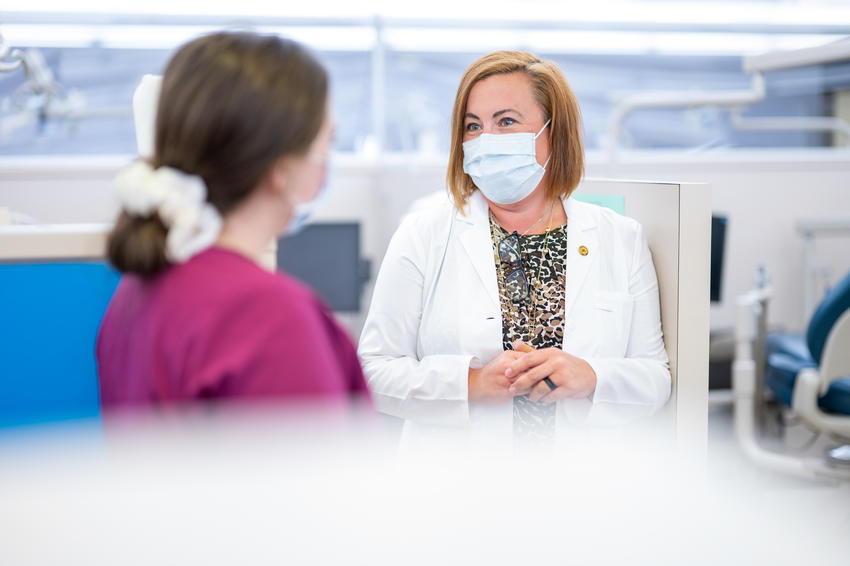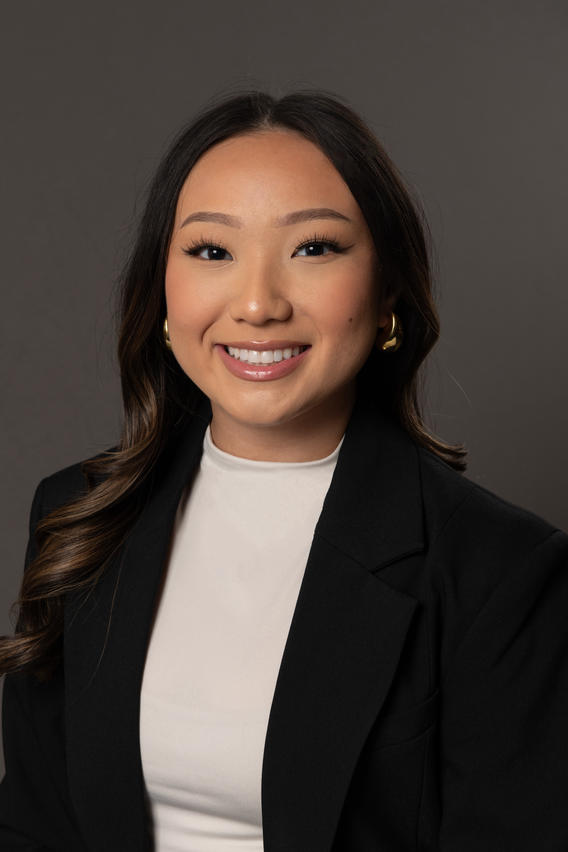Reibel receives ADHA IOH grant for work with Adoption Medicine Clinic

Yvette Reibel, EdD, LDH, assistant professor of dental hygiene, received an Institute of Health Community Service Grant through the American Dental Hygienists Association for her work with adopted children and those in foster care.
Established in 1986, the University of Minnesota Adoption Medicine Clinic provides comprehensive interdisciplinary care for children up to age ten who are in foster care, in kinship placement or adopted domestically or internationally.
“The clinic has developed a medical model to support these pediatric patients by understanding the importance of interdisciplinary care with the specific medical, psychological and development needs,” Reibel said. “Many of these patients have experienced trauma, substance exposure, neglect and institutionalized care in utero, in early childhood or beyond. These early stressors often lead to medical conditions that require many providers to help manage and provide support for patients and their caregivers.”
Beginning in January 2024, Reibel joined the clinic on a pilot program to add dental hygiene care to the team. Alongside a team of dental hygiene students who rotate through the clinic, Reibel assesses caries risk, screens for disease and provides counsel on nutrition and establishing a dental home.
Because she joined the clinic on a pilot program, funding—and therefore the level of care that could be provided—was limited. Reibel hopes to expand the program with educational resources, toothbrushes, toothpaste, the administration of fluoride varnish and additional resources. The IOH grant will support these goals, and more.
“The grant will allow dental hygiene students and I to provide hands-on educational experiences for these young children and caregivers to make lasting connections for the importance of oral health,” Reibel explained. “For many of these patients, oral health may not have been previously established. This is a small way for us to impact oral health literacy.”
Reibel spoke with the American Dental Hygienists Association’s podcast in more detail about the plans she has for the grant, and how it will impact the care she can provide.
Reibel is also excited about the opportunity this clinic provides her students to interact with children in the clinic. “This experience will impact the care our graduates are able to provide,” she said.
“Students have a new appreciation for the knowledge and perspectives of the medical providers on assessments of the patients. These visits allow students to understand what trauma-informed care means and how it can impact behaviors and coping strategies that they see in the clinics. I hope this experience provides students additional insight that they can take into consideration in their careers.”
Dental hygiene student Maria Canar, BSDH ’24, took those insights to heart after visiting the clinic. “Next time I see a kid having a hard time in the clinic, I will be able to remember that we don’t know their background, or their traumas,” she said. “Having this experience was mind-blowing.”
Canar says that, as a mother herself, she sees the value of a clinic that brings together various providers into one location—and now, she sees the value of such a clinic as a provider, too. “We talk a lot about interprofessional teamwork and collaboration in the classroom, but seeing how Dr. Reibel works with others on the team to provide insight about oral health care really changed my perspective on interprofessional work,” she explained. “I felt like everyone had a role.”

Starr Thao, BSDH ’24, also appreciated the interprofessional nature of the experience when she visited the clinic, and said it helped her understand the complexities involved in care for children in various stages of placement. “You don’t always recognize the lack of access to care and difficulties within the healthcare system,” she said. “I gained a new understanding of the different parts of the care team, and the eye-opening stories of the individuals visiting.”
Thao has a newfound appreciation for this clinic, and the good that it can do—especially with this new grant. “This specific population needs comprehensive care, and is often overlooked,” she said. “The waitlist adds on, and children fall through the cracks. This clinic offers comprehensive care in a timely manner, not only relieving these individuals of obstacles like additional appointments, but also showing them that they are cared for.”